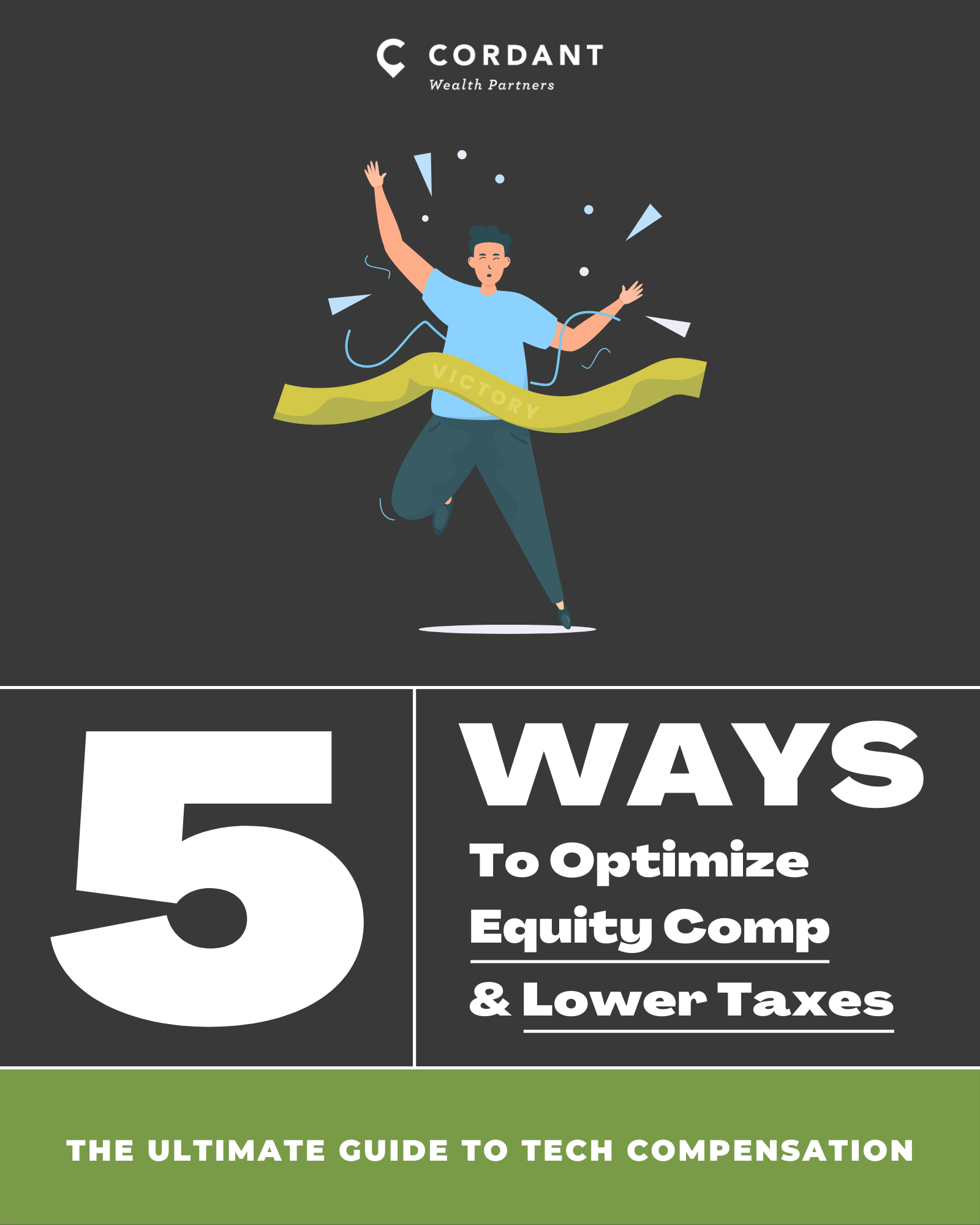Barron’s recently published an article titled ‘Does Your Company Give You Stock? Great. Sell It.’ As our clients will know, this is our default advice when it comes to company stock. Sure, it makes sense to evaluate company stock holdings in light of your unique financial situation—maybe it makes sense to hold from a tax perspective or to fund future charitable giving—but even still, it’s best to put a plan in place now. Don’t let the inertia of past decisions continue to influence your decisions today.
So, why does Barron’s (and many others) recommend selling your company stock? To quote the article, “Your financial future is already reliant on your employer’s fortunes. Don’t double down.”
Let’s review why it’s risky to concentrate wealth in your company stock and then conclude with suggestions on how you can take action today.
Your Company Stock: A Smart Bet?
A concentrated position in your company’s stocks is risky for a number of reasons.
First, to paraphrase the famous line, “it is very difficult to predict — especially the future [price of your company stock].” Knowing now whether an individual stock will go up or down in the future isn’t possible. What’s more, when it comes to future prospect for individual stocks, the odds are simply not in our favor. Most people would probably put these odds at 50/50. It’s actually worse than this. As we’ve covered before on the blog (The Risks of Owning Individual Stocks), according to a study by Longboard Asset Management, two out of three individual stocks have underperformed the market, and a nearly one in five have resulted in a loss of 75% or more.
Instead of making a bet where the odds are stacked against us, we prefer to invest with the odds in our favor.
So, since we can’t predict the future and because odds are stacked against any one stock being an outperformer, doubling down on your company stock is risky. From the article in Barron’s: “When you work for the company, all of your pay and benefits are tied to the company. If you’re adding additional investments on top of that, whether in a retirement plan or a stock purchase plan, you’ve magnified the risk.”
Consider all the ways in which your financial future is tied to the success of your employer (in this case Intel):
- Your income today
- Your minimum pension in the future
- Deferred comp (SERPLUS) since it’s a liability of your employer
- And, future stock RSUs, Options, OSUs grants.
All this in addition to any vested shares you continue to hold today.
Next Steps
So, if doubling down on your company stock isn’t a good idea, what to do next?
First, take a look at your portfolio and determine if you are holding too much of your company stock. What is ‘too much’ you may ask?
The usual rule of thumb is 10% or more in your company stock—and in fact, we see Barron’s using this heuristic: “Markowich suggests having no more than 10% of your savings invested in company stock.”
We define it a bit differently. As we wrote last month, if a major loss in your concentrated position breaks your financial plan, you are too concentrated.
If you can’t survive the position going to zero, or if you have to drastically reduce your financial priorities, it’s time to diversify. You don’t want to bet your goals, objectives and financial priorities on the back of one individual stock.
The next step is to put a plan in place. From Barron’s again:
“So, when do you sell? No one rings a bell when a stock reaches a top. The trick is to remove your gut feelings from the situation.”
Removing gut feeling is best done my putting a plan in place ahead of time. It can look something like this:
- Assess why you are holding the position (taxes, charitable contribution, emotional attachment, speculation, or simply inertia)
- Do you have any constraints preventing you from selling (e.g., company restrictions, trading windows, etc.)
- Choose whether to sell now or over time. Put a timeline and (or) upside/downside prices in place for when you will sell
There is a concept in behavioral economics called the Endowment Effect, which says that people assign more value to something simply because they own it. When it comes to your company stock and your financial future, don’t inflate the value of what you already own and underestimate the risk of doing so. Put a plan in place to diversify today.
If you’d like help getting this plan in place or with another area of wealth management, please get in touch.
Click here for disclosures regarding information contained in blog postings.
Cordant, Inc. is not affiliated or associated with, or endorsed by, Intel.


